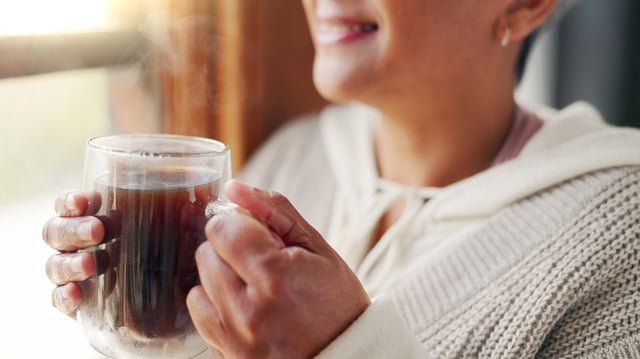Overview
- Researchers tracked 47,513 women from 1984 through 2016 using the Nurses’ Health Study and defined healthy aging as reaching at least 70 years old without 11 major chronic diseases and with maintained physical and cognitive function.
- Participants in the healthy agers group typically consumed about 315 mg of caffeine daily—equivalent to three small cups of caffeinated coffee—during their midlife years.
- Each extra cup of caffeinated coffee per day in midlife was associated with a 2% to 5% higher likelihood of healthy aging, with benefits plateauing at five small cups.
- The analysis found no significant association between healthy aging and tea or decaffeinated coffee and identified a 20% to 26% lower chance of healthy aging among those drinking caffeinated sodas.
- Investigators emphasize that coffee’s benefits are modest compared with overall lifestyle habits and say forthcoming research will explore its bioactive compounds, genetic influences and applicability to more diverse populations.



